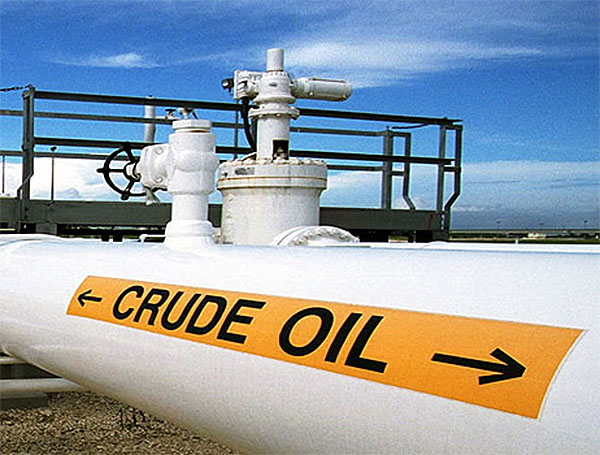
Findings from various oil and gas as well as statistical reports have shown that between January and May of this year, Nigeria’s revenue streams from the sale of crude oil decreased by about N500.6 billion.
On Wednesday, it was learned that the decline in revenue was caused by the nation’s oil production, which fell by 11.63 million barrels during the review period.
Data from various Organization of Petroleum Exporting Countries reports revealed that the nation produced 1.399 million barrels of crude oil per day in January, or 43.369 million barrels overall.
This, however, nose-dived to 1.024 million barrels per day in May, according to crude oil production figures based on direct communication as contained in OPEC reports, indicating a total production of 31.744 million barrels in May 2022.
The difference between January and May figures implies that Nigeria’s oil production crashed by 11.63 million barrels within the five-month period.
On the monetary value of the lost oil volumes, data from Statistica, a globally renowned statistical firm, showed that Nigeria had been losing billions of naira monthly due to the persistent plunge in its oil production.
Industry figures obtained from Statistica on Wednesday showed that in January, February, March, April and May 2022, the average prices of Brent, the global benchmark for crude, were $86.51/barrel, $97.13/barrel, $117.25/barrel, $104.58/barrel and $113.34/barrel respectively.
This gives an overall average of $103.76/barrel for crude oil during the five-month period.
With an overall average of $103.76/barrel and 11.63 million barrels of crude lost between January and May, it implies that Nigeria’s oil revenue crashed by $1.21bn (N500.6bn at the official exchange rate of N415/$) during the period under review.
Meanwhile, additional findings by our correspondent indicated that the nation’s oil production kept moving southwards since January this year.
Figures from OPEC reports showed that while the country produced 1.399 million barrels per day in January, this crashed to 1.258 million barrels per day in February.
The oil production plunge continued in March, as it dropped 1.238 million barrels per day and further went down to 1.219 million barrels per day in April.
The worst plunge was recorded in May this year, as the country’s oil production slumped to 1.024 million barrels per day, based on crude oil production figures obtained through direct communication by OPEC.
Operators and government officials have repeatedly complained about the crash in Nigeria’s oil production and its impact on the country’s badly hit economy.
Vandalism, oil theft, sabotage, among others, have been thrown up occasionally as the causes of the crash in Nigeria’s crude oil production.
However, efforts are ongoing by the Federal Government to boost oil production in Nigeria, as on Tuesday it awarded Petroleum Prospecting Licenses to more than 150 indigenous companies to explore for crude from 57 marginal fields.
Reacting to the country’s oil production challenges while speaking to marginal field investors in Abuja, the Chief Executive, Nigeria Upstream Petroleum Regulatory Commission, Gbenga Komolafe, regretted that the rise in oil prices had not reflected in Nigeria.
He said:-
“It is worthy of note that the average price of crude oil in recent months has been above $100 per barrel. This upward swing in market fundamentals is largely associated with the Russian/Ukraine conflict.
“However, the impact of the upswing in the crude oil price is not reflecting in the nation’s revenue earnings due to disruptions in our national oil production owing to sabotage, theft, and other operational challenges.
“Therefore, potential licensees are urged to take advantage of the current market realities and quickly bring their fields to production.”
Also, the Minister of State for Petroleum Resources, Chief Timipre Sylva, urged investors to support the government in boosting the country’s crude oil production so that Nigeria would gain from the current price rise.
He said:-
“It is my strong belief that the awardees would take advantage of the current attractive oil prices to bring these fields into full production within a short period in line with Mr. President’s aspiration to increase production, grow reserves and reduce the cost of production.
“The onboarding of new oil and gas players in the petroleum sector is part of this government’s policy to encourage more indigenous participation in our petroleum operations.
“Indeed, this will boost activities in the oil and gas sector, add to our production output, and create additional employment opportunities for Nigerians.”
The Managing Director, Matrix Energy Group, Adisa Aliu, also called on operators in Nigeria’s upstream oil sector to take advantage of the continued upswing in global crude oil prices in the past few months.
He said this would help shore-up Nigeria’s crude oil production, increase its foreign exchange earnings and boost the country’s overall economy.
He said:-
“We are aware that the upstream industry is more challenging. But we are also aware that there are a lot of opportunities to contribute to the growth and development of the industry, in particular, and the country in general.
“As an oil-producing country, it is best for the operators to ensure they take advantage of the cu


Leave a Reply